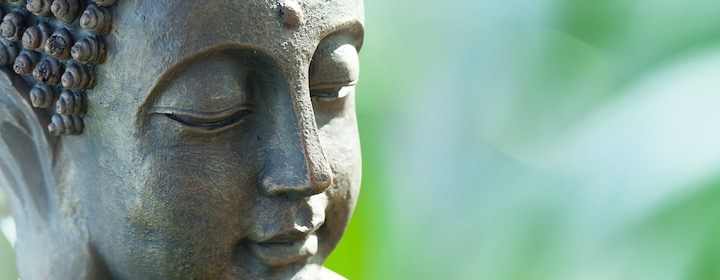Over the years, the hateful killing of black Americans at the hands of police has been shocking, heartbreaking, and paralyzing. Why does this keep happening and what can we do to stop it…what can I do to stop it? And to stop other horrendous acts of hatred toward minority communities and individuals in our country?
The heinous murder George Floyd (a horizontal lynching, actually) has galvanized much of America. Modern social media tools have shown a spotlight on this cancer of hate and have broadcast it to the entire world. This is what America has become? No, this is what America has been for 400 years. Deep-seated racism has been created, accepted, fostered, justified, ignored, hidden, lied about. Racism has been promoted and protected by government, business, and community policies; by legal bias and race-based incarceration, housing practices, educational systems, workplace hiring and placement; by coded-language, inaction, and silence; by greed, hatred, and delusion.
Racism has passed down among white Americans from generation to generation, overtly, covertly, allowing cruelty, exclusion, and violence to unfold without consequence. Even in families, like my own, where children were taught to be polite and respectful to all, including of people of color, the systems and orbits within which we interacted did not change whatsoever.
Now, millions of white Americans are discovering for the first time the cloak of something called White Privilege*. I first encountered this invisible conditioning, when preparing for a racial consciousness workshop in the early 1990’s, by reading the article, “White Privilege: Unpacking the Invisible Knapsack” by Peggy McIntosh, in the 1990 issue of Independent Schools. I am not talking about intellectual understanding that I as a white person, in my everyday life, don’t have to deal with racial and ethnic hatred and discrimination and it’s 400-year old consequences, as I walk out the door in the morning and move through space. The awareness of White Privilege I’m referring to arises with an inner knowing that the cloak of white-privilege-protection is invisible only to us, is not neutral, is suffocating, and is deeply harmful to others and oneself.
First, let’s briefly scan the Buddha’s teachings that can guide our actions in a climate of racism. The Buddha taught a course of action, the Dharmma, for individuals to follow, leading to liberation from the bonds of suffering. He strongly acknowledged that practice needs a supportive community, the Sangha. We each have to do our own work to recognize harming (and its systems) and cultivate non-harming, and we need a community of support for necessary action, internal and external. Examples in the texts include:
- Mindfulness [MN* 10]: We pay attention to what is going on internally and externally. (What am I thinking, saying and doing…and what am I saying and doing about what I am hearing and seeing?)
- The precepts [AN* 4.61]: Ethical teachings on non-harming regarding living beings, property, sex, speech, and intoxicants.
- Two kinds of thought [MN 19]: Is what I am thinking leading to my affliction or the affliction of others? If so, abandon it. If what I am thinking lead to my welfare and the welfare of others? If so, continue.
- The Buddha’s advice to his son Rahula [MN 61]: Notice whether actions you have taken, are taking, or plan to take benefit you and others (including systems). If they do not, don’t engage in them (or protect the system).
- Proper speech [MN 139]: Talk only when it is well-spoken, true, blameless, gentle, and timely.
- Reproving others [AN 5.167]: When necessary, use proper speech, with sympathy, regardless of another’s status (but we do call them out).
- Teaching the people of Kalama [AN 3.65]: Do greed, hatred, and delusion lead to welfare or harm? If you know they cause harm, avoid them.
- How do we stop anger (hidden in racism) [AN 3.132]? Remove resentment from the heart (resentment I may hold to those near me and those people over there).
- How do we remove resentment [AN 5.161]? Cultivate kindness, compassion, and equanimity. Disregard people or situations that nourish or relish resentment. Their karma is their own. (Don’t get caught in their resentment.)
- Associating with the right people: Engage with wise and wholesome friends, teachers, and communities (who show us how to show up against racism).
- Social status [MN 96]: There are no fixed hierarchies of privilege. Only ethical behavior matters. (We treat all people as equals and peers, in life and in institutions.)
- Reciprocal responsibilities [DN* 31]: The Buddha discussed reciprocal responsibilities between husbands and wives, parents and children, teachers and students, friends and companions, master and servant, etc. Each relationship involves give and take. (We must promote giving and taking…and taking and giving. This includes those who enjoy privilege and those seeking a full measure of opportunity. The former must give up, the latter must take up.)
- Managing disputes [AN 2.15]: Start with self-reflection and then engage in conversation with others to determine a path forward.
- Wealth [DN 5]: Share it.
* MN = Majjhima Nikāya; AN = Anguttara Nikāya; DN = Digha Nikāya
The great American translator of the Pali texts, Ven. Bhikkhu Bodhi, offered some thoughts [which I’ve paraphrased] in an article called “From Tragedy Springs Hope: Reflections on the Killing of George Floyd” (Lion’s Roar, Summer 2020).
We do not have “liberty and justice for all”. We must take action to provide black Americans and other minorities the critical building blocks of personal and communal well-being. It is our government’s job to ensure these building blocks are available. We spend vast wealth sustaining military, arming police departments, enabling private equity firms, and giving tax breaks to billionaires and giant corporations. So, we have the money. But many white Americans are uncomfortable spending on services that will benefit so many people of color. Among rich nations, the U.S. has a weak social safety net, allocating lower rates of national wealth to make progress on “liberty and justice for all”. Racism is a factor in this. Yet we need to help everyone with a world class education, affordable housing, quality health care, and living wages. Further, we must do all we can to engage everyone in the political process and counter efforts to stifle or limit access to voting.
One thing we can do is take an unflinching look into our perceptions and attitudes about people of color. For white people, it means squirming in the uncomfortable reality of our views and stereotypes of every human being, regardless of skin color, eye shape, ethnic origins. Everyone is worthy of care and respect. Just as we cherish ourselves and loved ones, we must learn to see that every person is endowed with value and is worth cherishing.
It is very difficult to change our perceptions, because our minds are governed by a deep tendency to objectify others and put them in categories that reflect our biases and fears. To objectify others is to blind ourselves to their own intrinsic reality as persons who, like us, want to avoid suffering, seek happiness, and realize their own potential. We must probe the truth of our shared humanity, fragility, and vulnerability. We must cultivate genuine compassion for those who suffer, foster a desire to ameliorate it, and affirm our common capacity for leading lives of purpose. This will unite us in a collaborative effort to create a society in which everyone can flourish.
Changing cultural norms means we will run into obstacles both internally to ourselves and, of course, externally. We will confront our own internal biases, but also the opposition of family, friends, peers who benefit from the divisions of privilege in our society. It will be painful. We may lose friends, privileges, and comfort zones. But “liberty and justice for all” cannot flourish until we let go of what is familiar, and welcome what is not.
What can we do? Here are some things I have been doing:
Investigation / Study
- Reading articles and watching documentaries by People of Color about their experience now and historically; e.g. “I am Not Your Negro” about James Baldwin now streaming on Netflix
- Visiting the National Museum of African American History and Culture
- Reading books: Between the World and Me; Just Mercy; next…How to be an Antiracist and White Fragility
- Looking at what my investments – and my shopping – are doing
- Watching my mind when I see a race-based judgment arise, or notice specific circumstances where I dwell in white privilege
Speaking / Using My Voice
- Contacting state and federal politicians about police reform action and other issues that affect People of Color disproportionately
- Writing letters and sending emails to various law-enforcement groups
- Talking about this issue with a black friend
- Having uncomfortable group conversations with my white high school classmates
Doing / Taking Action
- Contributing dollars to support candidates of color or defeat blatantly racist candidates
- Joining in public action, like a rally
- Allocating a significant portion of my estate to the United Negro College Fund and the Native American College Fund
Here are a couple of things you can do on racism this week. Make an inventory of steps you have taken in the last couple years to counter racism in our country. However short, it is a start. Build on that. Ask yourself, “What can I study, say, and do that will uncloak the conspiracy of racism (white privilege) in my circle of life?” As you do this, be strong, honest, and kind.



